On 22 May 2025, during this year’s Cannes Film Festival taking place in France, the Korean short film “First Summer” won first prize in La Cinef student film category, making its director Heo Ga-young the first Korean filmmaker ever to receive the award in this section. Created as a graduation project at the Korean Academy of Film Arts (KAFA), the film was selected from among 2,679 entries submitted by students from 646 schools worldwide—with only 16 ultimately invited to compete.
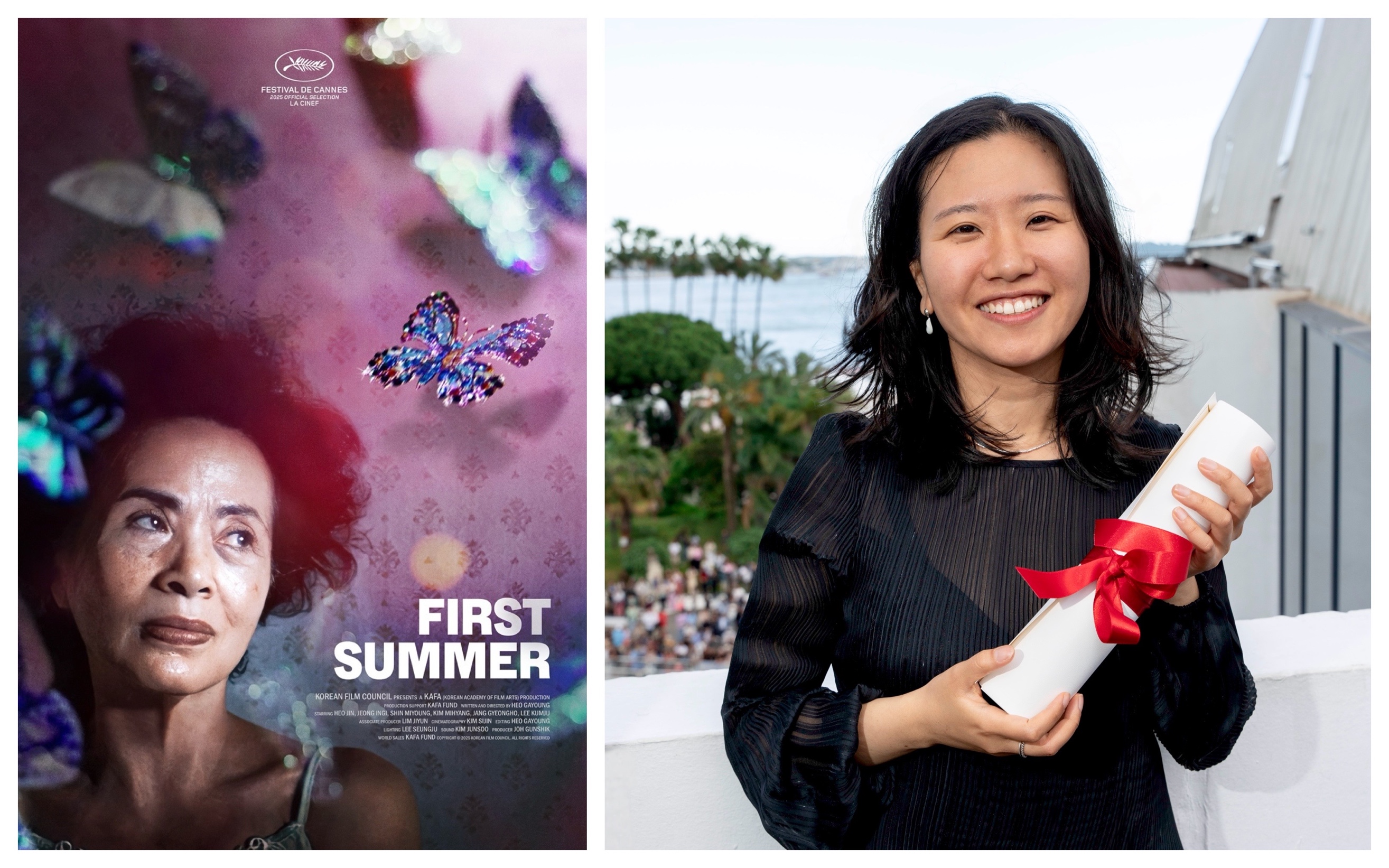
When I reached out to director Heo Ga-young and producer Lim Ji-yun for a joint interview to discuss the success of their short film, I knew it was important for me to first understand the world they had created. Soon after our initial contact, they generously shared with me a private online link, and once I had the chance to watch “First Summer”, I was deeply moved. Short films are often seen as compact stories meant to deliver something profound in a limited span of time—but to me, the most powerful ones do not try to “say” something in a traditional sense. I believe a good short film takes us, the viewers, on a journey—not through a complex plot, but through our own reflections, stirred by a seemingly simple narrative.
In youth, we often rush to fill the empty spaces in our lives with decisions—some made by choice, others shaped by circumstance. Later, we may try to revisit, revise, or make sense of those choices through the lens of experience and wisdom we gain with age, but no matter how much we reinterpret the past, its marks remain, eventually becoming part of who we are—and they deserve to be shared with younger generations, whether as lessons or simply in celebration of a life lived. This is one of the reasons “First Summer” resonates so deeply. It speaks to a universal truth—of hope, free will, and respect for one’s own life decisions, while offering just enough plot for each viewer to reflect on, interpret, and imagine what might have been.
This beautifully crafted short film depicts an elderly woman, Yeongsun, attempting to rewrite the empty spaces of her life—resulting in a poignant, deeply human narrative brought to life by an experienced cast and a young but visionary creative team. In this special interview, we explore the film’s creative process and international recognition with its writer-director Heo Ga-young and producer Lim Ji-yun.
This interview was conducted in writing via email between May 26 and July 7.
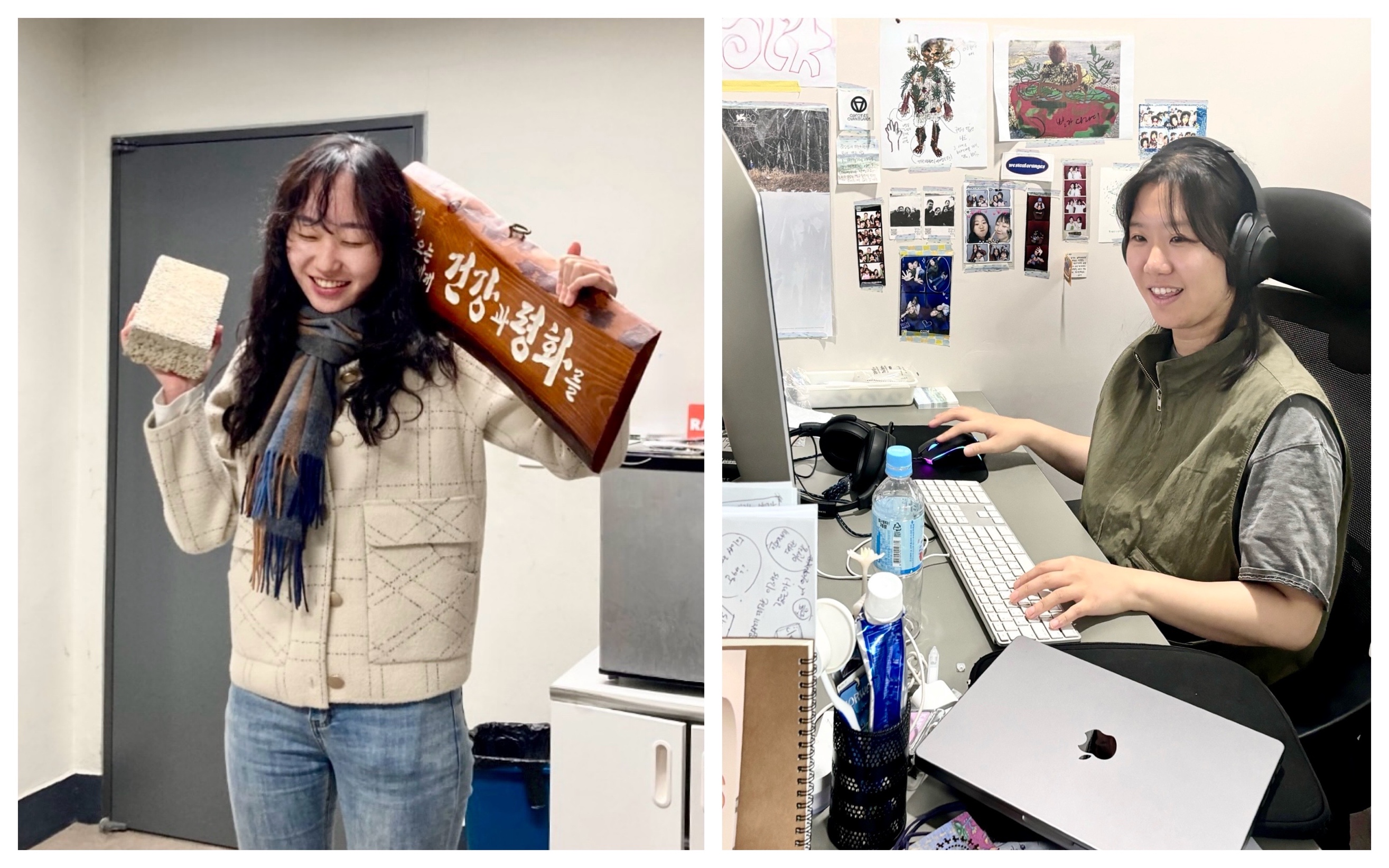
Could you both briefly tell us about your academic and professional backgrounds?
Heo Ga-young (Director): Hello from Korea! I’m Heo Ga-young, the writer and director of “First Summer”. I studied business and philosophy as an undergraduate. I have always been curious and enjoyed exploring different activities, but I eventually felt a strong desire to make films that reflected my own perspective. That’s what led me to enroll at the Korean Academy of Film Arts (KAFA) to major in Film Directing. I am a graduate of the 41st class there, and my 30-minute short film “First Summer” that was awarded the first prize in La Cinef category at this year’s Cannes Film Festival was my graduation film for KAFA.
Lim Ji-yun (Producer): I’m Lim Ji-yun, the film’s producer. I majored in Film Producing at KAFA, which also served as the production company for this project. Creating “First Summer” at KAFA with this amazing team of my peers—director Heo Ga-young (a Directing major), cinematographer Kim Sijin (a Cinematography major), sound supervisor Kim Junsoo (a Sound major), and actress Lee Kum-ju (an acting major) who portrayed Seokyun—was a truly joyful and meaningful experience for me. Before KAFA, I studied Film & Animation and Korean Literature. Focusing on directing and producing, I also worked as a production assistant in advertising and produced music videos.
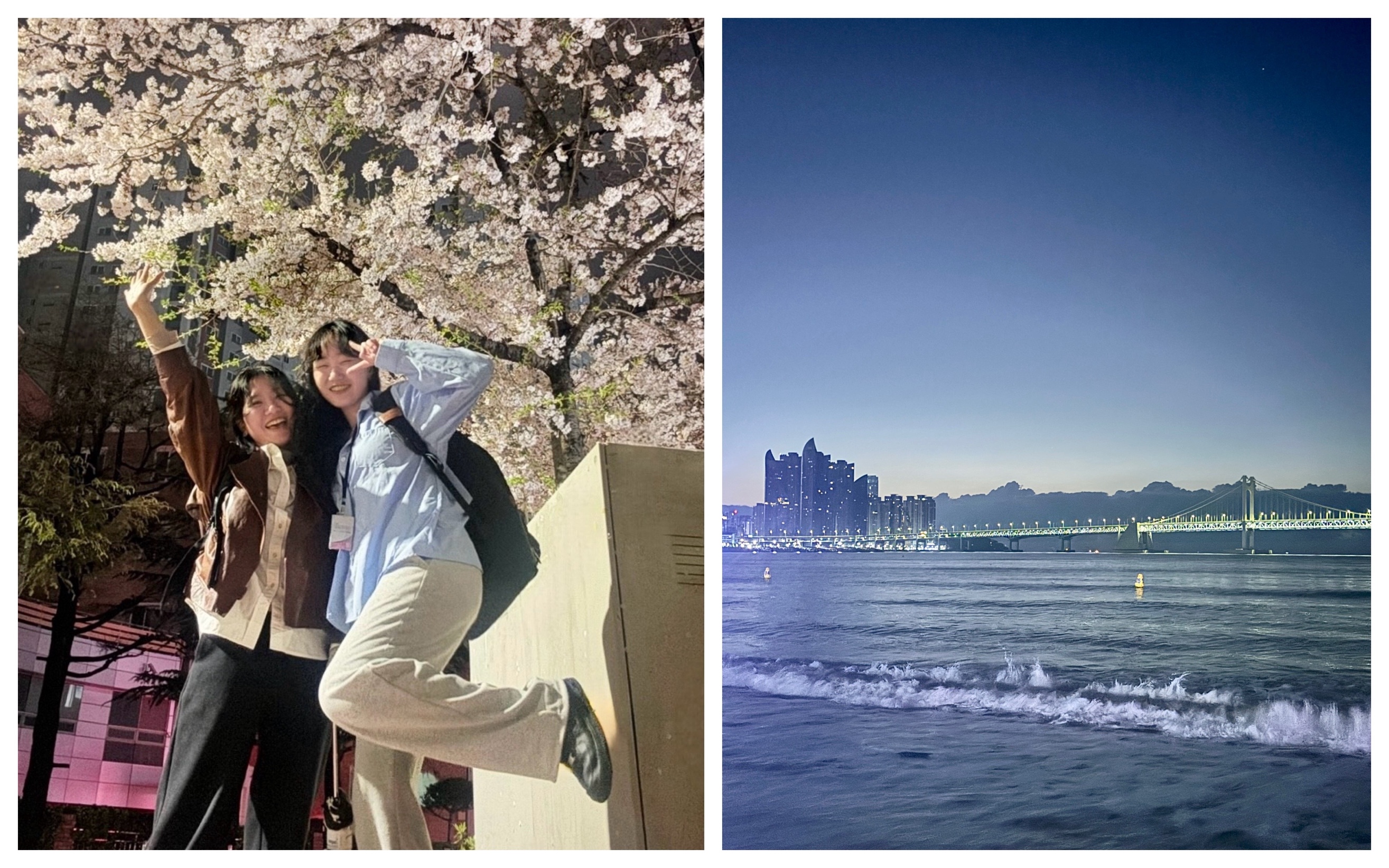
How was it being a KAFA student living and working in Busan, the very heart of Korea’s film industry?
Lim Ji-yun (Producer): Throughout 2024, we were all based in Busan, where KAFA is also located, with our campus and dorm in the seaside neighborhood of Gwangalli. It was an intense but unforgettable year shared with 34 classmates and devoted KAFA faculty and staff. We often joked it was “romantic movie hell”—and it truly was. I came to KAFA to better understand film producing, and I’m grateful I did. I got to meet inspiring people while working on powerful stories. I spent so much time scouting locations while helping on my peers’ sets that, by the end, Busan felt like the back of my hand.
Heo Ga-young (Director): I always had the desire to make films, but since I did not come from a film background, it was extremely difficult to find colleagues or opportunities to actually do so. KAFA introduced me to great peers and provided both the chance and the funding to create films. That one year there in Busan was more intense than any other period of my life, and it allowed me to focus entirely on filmmaking. I still remember all those countless nights when we worked together until dawn and then sat by the Gwangalli beach, drinking beer and making memories.
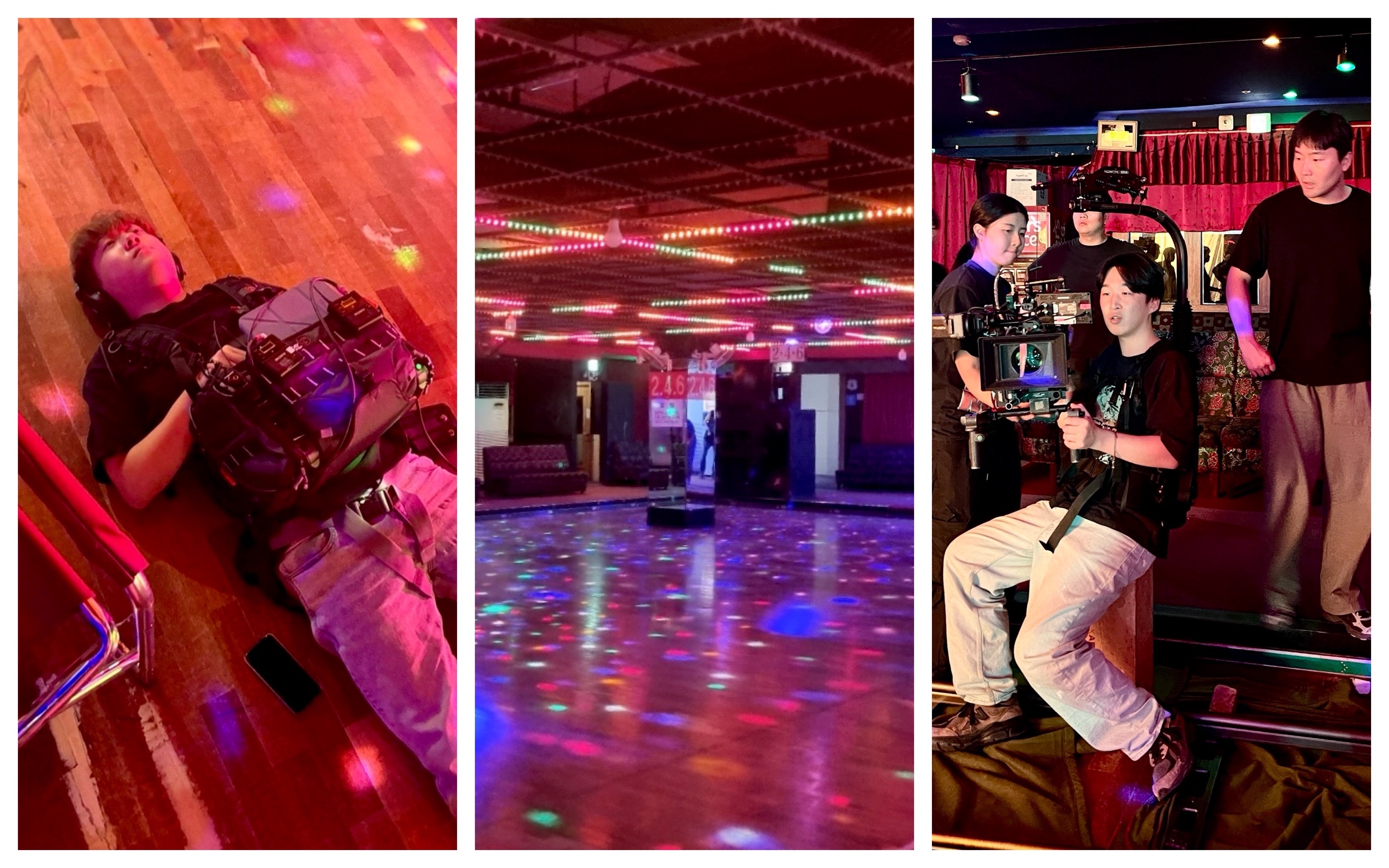
How did the idea and script for “First Summer” come about?
Heo Ga-young (Director): “First Summer” was inspired by my grandmother. While the story in the film is quite different from her actual life, there is no doubt she was the starting point. She was a truly unique woman. During my youth, I spent about six months living with her. Not once did she ask me how I was doing, nor did she ever cook for me. Instead, she would get dressed up in front of the mirror and head out without saying a word. Every night, she wore a face mask to sleep, but she never once offered me one. I remember constantly wondering, “Who is this woman? Why doesn’t she love me?”
While I was in college, one of my assignments was to interview an elderly person close to me, so I went to visit my grandmother. I asked her, “How have you been?” and she replied, “Actually, I have a boyfriend, but he stopped calling, so I’ve been taking sleeping pills to deal with it.” That was the beginning. For six straight hours, I listened as she talked about the kind of woman she had been, and the kind of love she had lived through.
On my way home, I couldn’t shake off the emotions from that conversation. I had always seen her as a fragile, aging person—but in that moment, I realized she was also a woman who had fought to protect her own life, someone who still longed to be loved. That realization was beautiful, heartbreaking, and painful all at once. It shattered the prejudices I had held about aging.
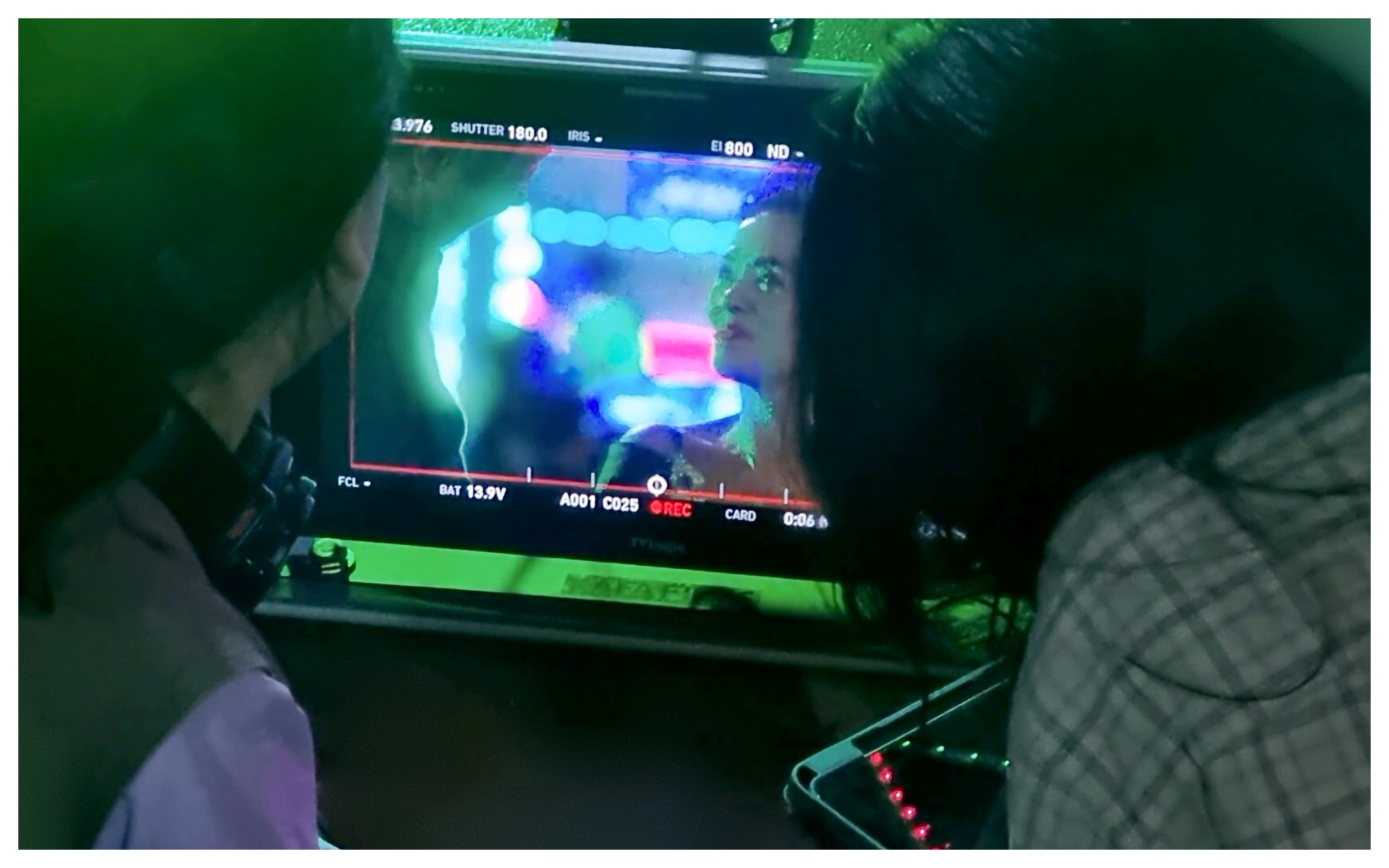
There is a scene in “First Summer” where the main character, Yeongsun, begins to dance near a temple—that moment was directly inspired by this realisation I had about my grandmother who passed away two years ago. During the 49th-day memorial service for my grandmother, as I listened to the monks chanting and playing music, the sounds strangely reminded me of the music played at a “colatec”—a Korean disco or cabaret for seniors. I suddenly pictured my grandmother dancing to it—freely and full of joy… It was so lovely imagining her dancing like that, just for herself. That image became the seed of this film.
How was the scriptwriting process for “First Summer”?
Heo Ga-young (Director): It was incredibly painful—honestly, one of the biggest crises of my life—but at the same time, writing “First Summer” was an immensely valuable journey, filled with joy and growth. For me, it is a story about a woman finally coming face-to-face with herself. I wanted to portray the life of an elderly woman with close, delicate attention. Since the story was rooted in my grandmother, it felt deeply personal. I carried a constant fear and guilt, as if I might be exploiting her story. I was determined to make a film no one could dismiss as “just selling out grandma’s story.”
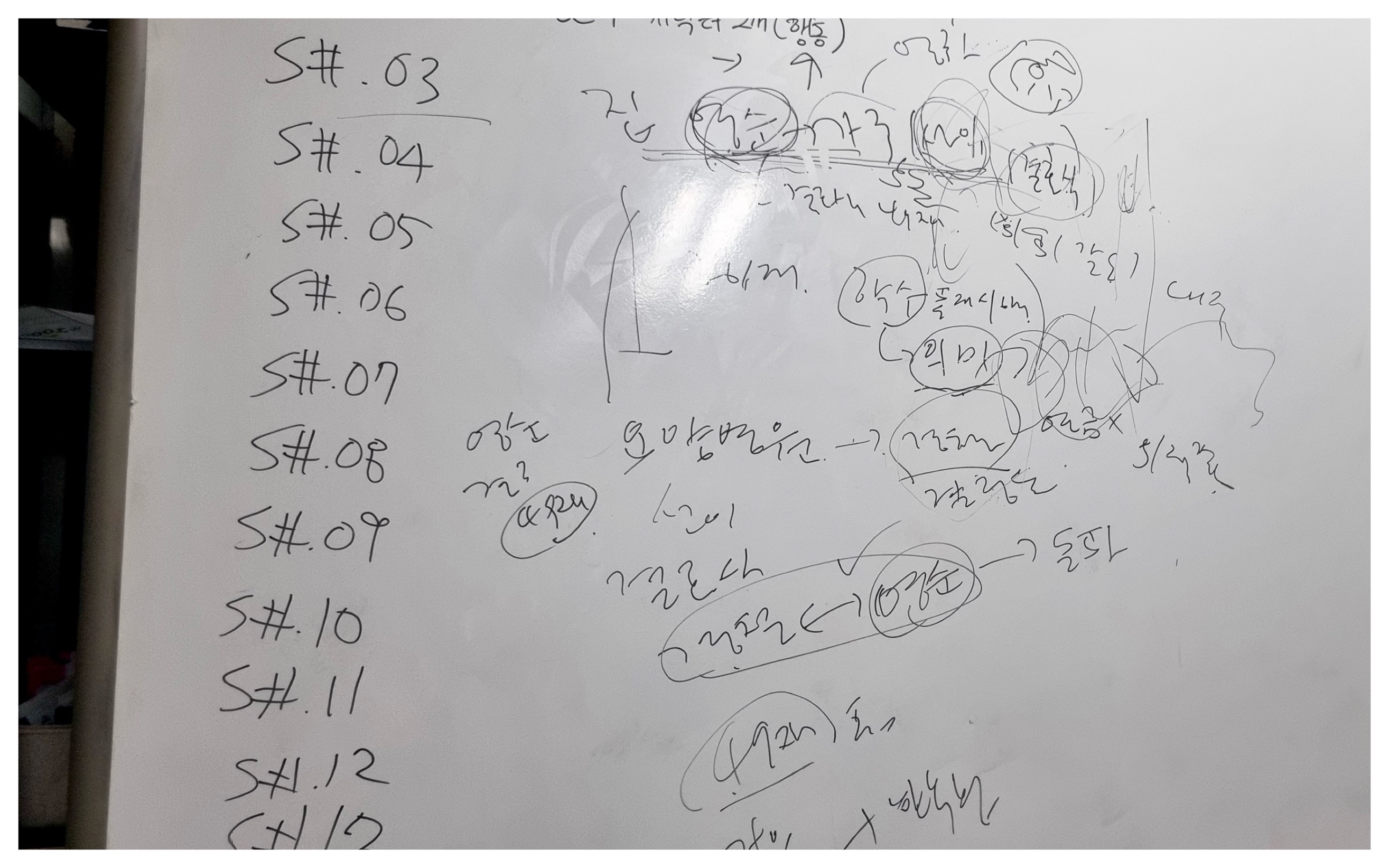
I kept reminding myself: “As a woman in my 20s, I will not flatten or objectify elderly women, and I will not romanticize aging.” But the biggest obstacle for me during writing was myself. As a young woman, I couldn’t fully grasp the physical and emotional realities of old age—what it feels like to experience physical intimacy at that age, how one’s joints feel after dancing, what a long walk means to someone in their 70s or 80s. There were so many blind spots in my script. It was the elderly women we met during our research trips, along with the actors themselves, who helped fill in those gaps.
Making this film hurt more than anything else I have ever done, but it also brought me the most joy. Because this story is for my grandmother—and for all elderly Korean women—I approached it with a kind of solemn urgency. I had to carve myself open to stay honest to that purpose. And this script only came to life because of the crew. They stayed up all night with me, gave me endless feedback, and pitched better ideas. This was a story we built together—and that makes it all the more precious.
While writing older characters, what kind of research or efforts did you make to understand and portray them more authentically?
Heo Ga-young (Director): While writing the script, I dug up old records—especially the full transcripts from my interview with my grandmother years earlier. I reread them over and over, trying to return to that moment, to meet her gaze again. I also sought advice from her surviving family members, including my mom. They helped me bring more dimension to the family members surrounding our protagonist, Yeongsun.
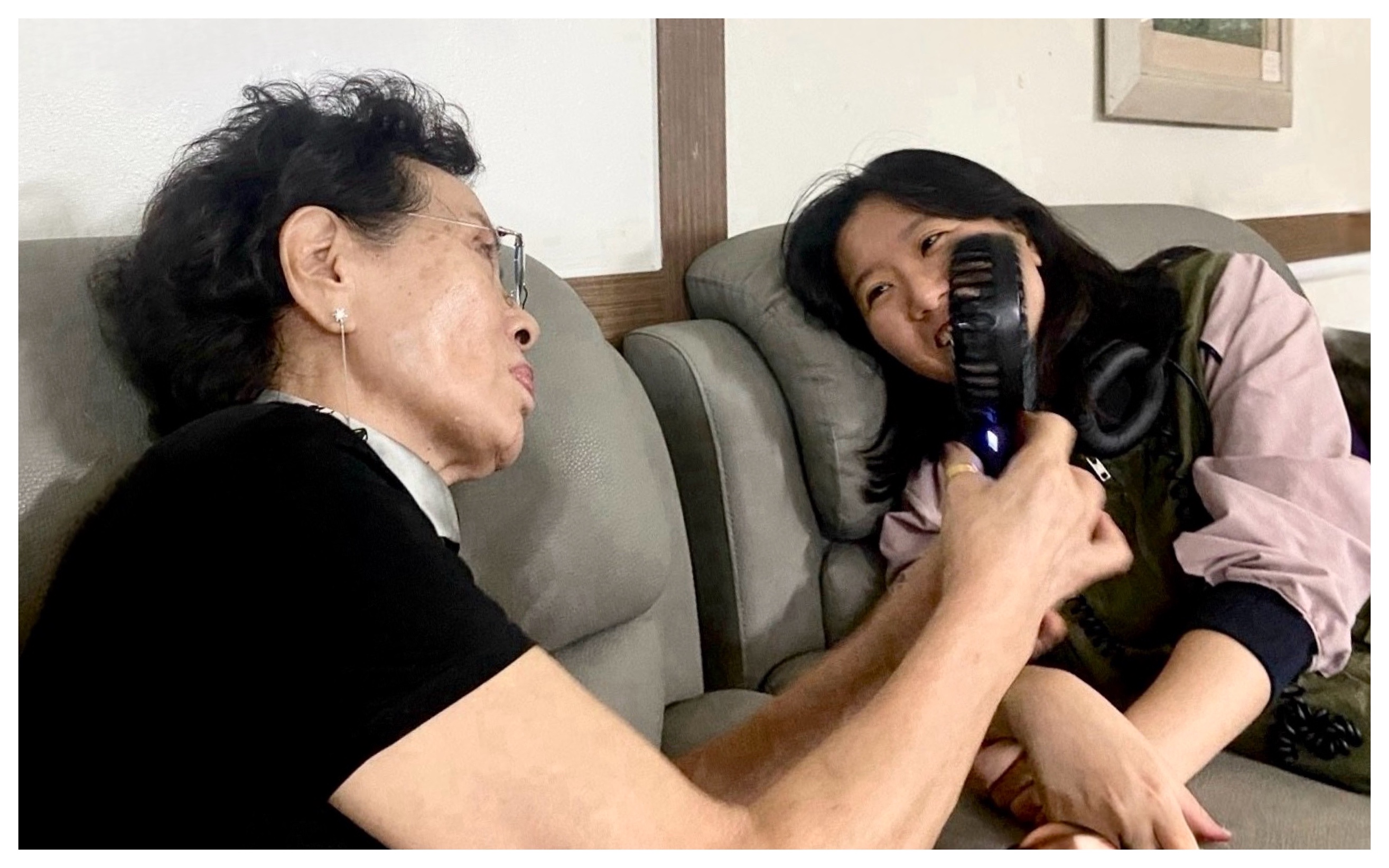
Even though I have never lived the life of an elderly woman, I had to become Yeongsun in order to write her. I had to speak and act as her, to understand how she thinks and feels, but that single conversation with my grandmother was not enough. So, the first thing we did as a team was to visit a colatec in Busan. We sat there for hours, drinking beer and watching elderly folks dance. Slowly, they began approaching us, asking us to dance. I spoke with them, watched them, took in their speech patterns, facial expressions, and the way they moved. Some of the dialogue in the colatec scenes—like the banter between Yeongsun and Deokhui—was adapted directly from real conversations we overheard. That fieldwork remains as one of my most cherished memories from the entire process. It brought us joy and made our team stronger.
Working with actress Heo Jin also deeply shaped both the writing and directing. She breathed life into the imagined version of Yeongsun. She described in detail what a typical day is like for a woman in her 70s. We went over every line of dialogue together, adjusting things to make them sound more grounded and authentic. Of course, some parts had to be let go while others got better in the process, but collaborating so closely with someone so much more experienced helped me grow tremendously. The Yeongsun you see now is very different from the one I originally imagined. The earlier version was rougher, more rustic. Jin’s Yeongsun is elegant and refined. I learned to embrace that kind of creative chemistry between actor and director. Personally, I love both versions.
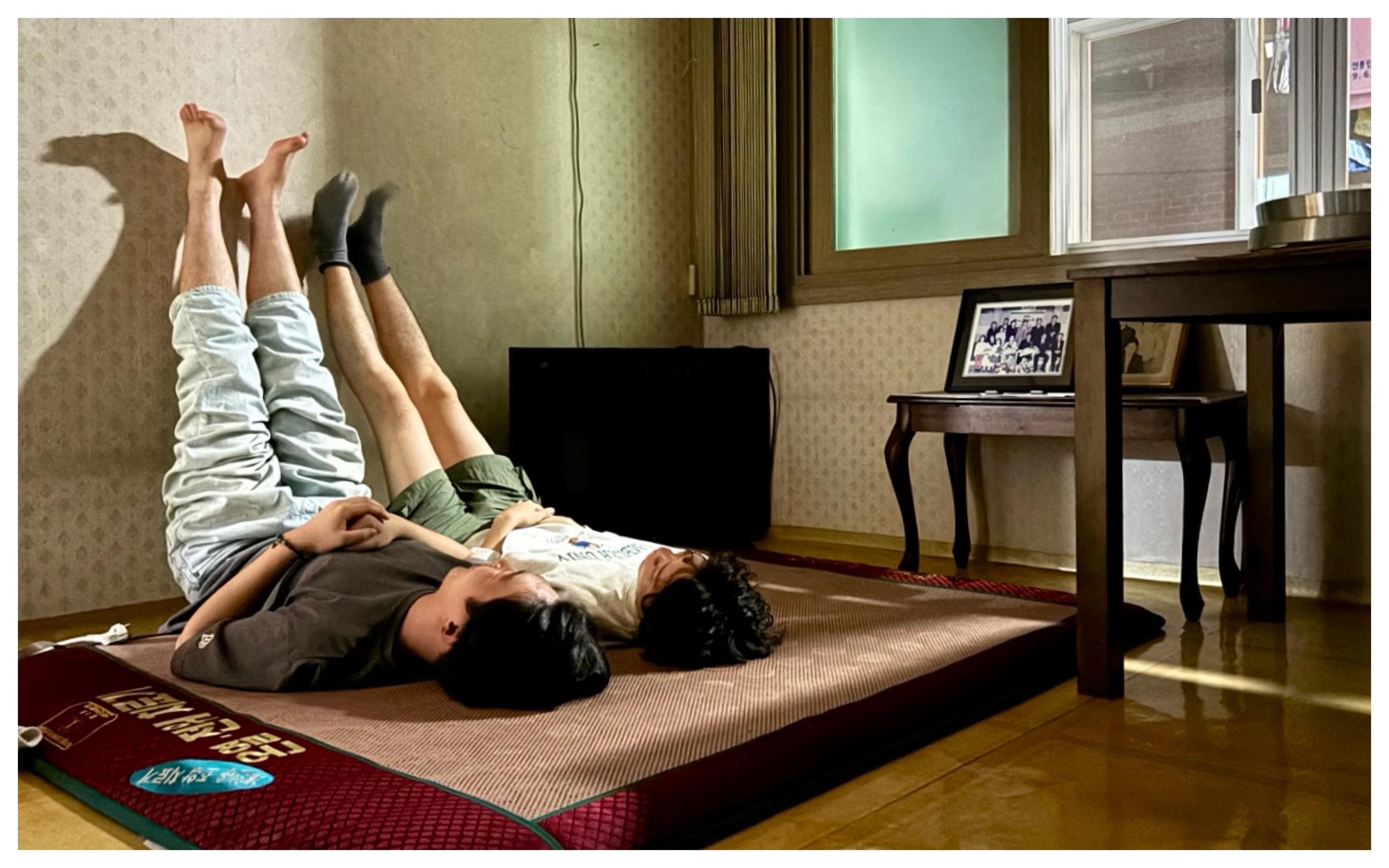
Why is the film titled “First Summer”?
Heo Ga-young (Director): I believe many women in Korea gradually give up parts of themselves—sometimes out of necessity, sometimes by choice—simply while living their day-to-day lives. And yet, they continue, moving quietly and persistently, trying to reclaim what they have lost along the way. That beautifully gentle and loving motion of Korean women shaped who I am and ultimately led me to make this film. This quiet perseverance feels like a silent legacy in the Korean society—one I was raised on. Through this film, I wanted to offer something back to them. Especially for Yeongsun, I wanted to return that passionate, full, and radiant “summer” that once belonged to her.
In fact, the main character’s name Yeongsun sounds like "young sun" in English. She’s portrayed as a well-groomed elderly woman who never fully lived out her youth yet is now beginning to feel young emotions. Was there an intentional connection between her name and the English words "young" and "sun"? Or was it a coincidence?
Heo Ga-young (Director): It was actually a coincidence! But I love your interpretation. It means a lot. I chose this name simply because it came to my mind while writing.
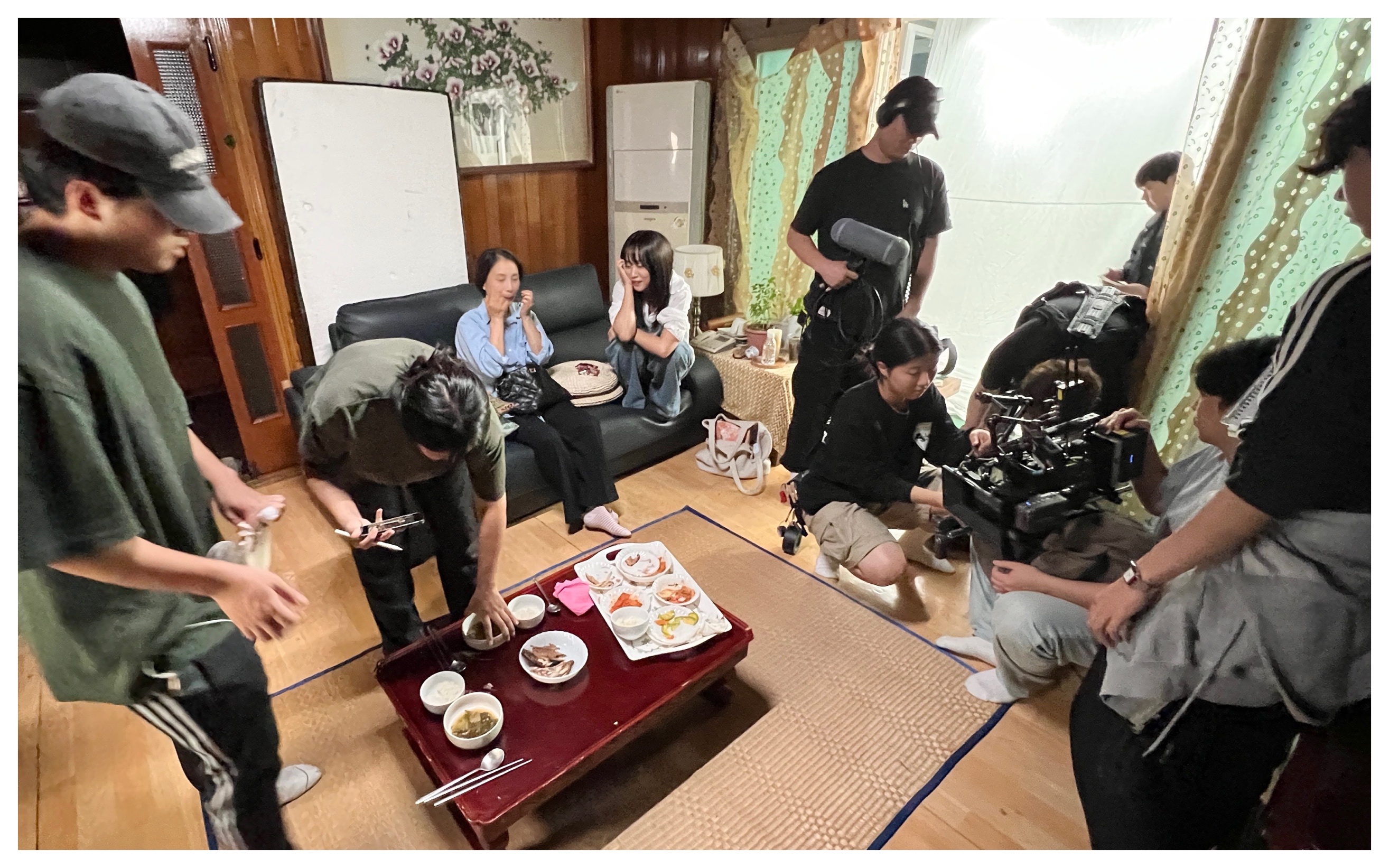
As the writer and the director, what was your role in the casting and crew selection process?
Heo Ga-young (Director): Since this was a small film, I was involved in every single casting and staffing decision. I personally reached out to each actor, did my own research, and handed them the script myself. One of my most important criteria for casting was age. I wanted actors who were truly in their 70s for authenticity. After trying with younger actors, I realized they couldn’t quite capture that lived experience.
For the crew, I began by asking a few classmates from film school—our producer, cinematographer, and sound supervisor—if they would join the project. The four of us then worked together as a team to build the rest of the crew from scratch. It was crucial that our cinematographer truly understand and sensitively portray the life of an elderly woman. Kim Sijin, our cinematographer, had a deep grasp of the character's desires and collaborated closely with us throughout the process.
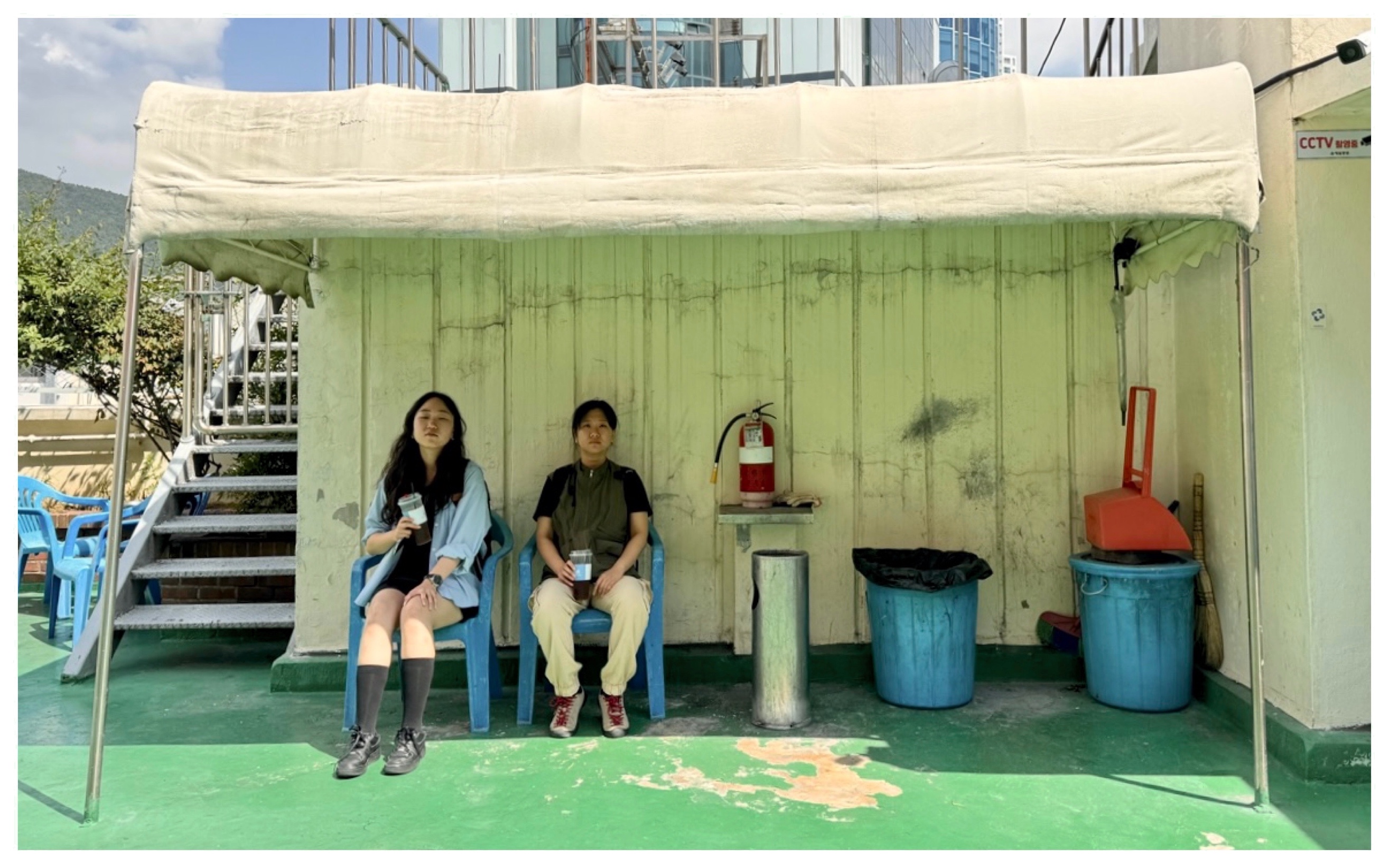
How did you two meet each other and decide to shoot “First Summer” together?
Lim Ji-yun (Producer): Director Heo and I were actually dorm roommates at KAFA. Even before “First Summer” was conceived, we often found ourselves having drinks by the sea, talking about life and cinema. I already had a sense of how she viewed the world—and how she approached the character of Yeongsun, but what stayed with me most was something she said even before writing the script: "Love and physical intimacy are not just for the young. I dislike how elderly romance is treated as taboo.” That idea alone gave this film more than enough reason to be made. To be honest, I really wanted to be the one to make it happen.
As the producer, how did you feel when you first read the script?
Lim Ji-yun (Producer): My first thought was, “This is a film that needs to be made.” Unless I feel there’s a clear reason a project should exist, it is hard for me to fully commit to producing it. Making a film—especially a low-budget short—demands enormous time, money, and manpower. With limited resources, the support of everyone involved—crew, cast, locations, sponsors—is absolutely crucial. And in those moments when help is most needed, it is the producer’s job to persuade and unite everyone. But I can’t ask others to believe in something I don’t fully stand behind myself.
When I read the first draft, it was quite different from what the film eventually became. At that time, Seokyun was the main character, observing Yeongsun, her grandmother, from her perspective. But even then, the core idea of the film—a fresh, non-stereotypical gaze on aging—was already very much present. As a producer, I was immediately drawn to the project. In fact, Director Heo’s script was so well received by our professors and classmates that it passed KAFA’s internal review faster than any other project, giving us priority in securing our production budget and filming schedule. From every angle, this was the kind of project producers dream of.
On a more personal note, I was thrilled when Director Heo asked to meet me—but knowing others were interested too, I tried to be a bit clever—vulpine, even. I said something like, “There are many great producers, so don’t feel pressured to choose me, but I’ve put together three budget and schedule versions—feel free to use them however you like.” That strategy seemed to work.
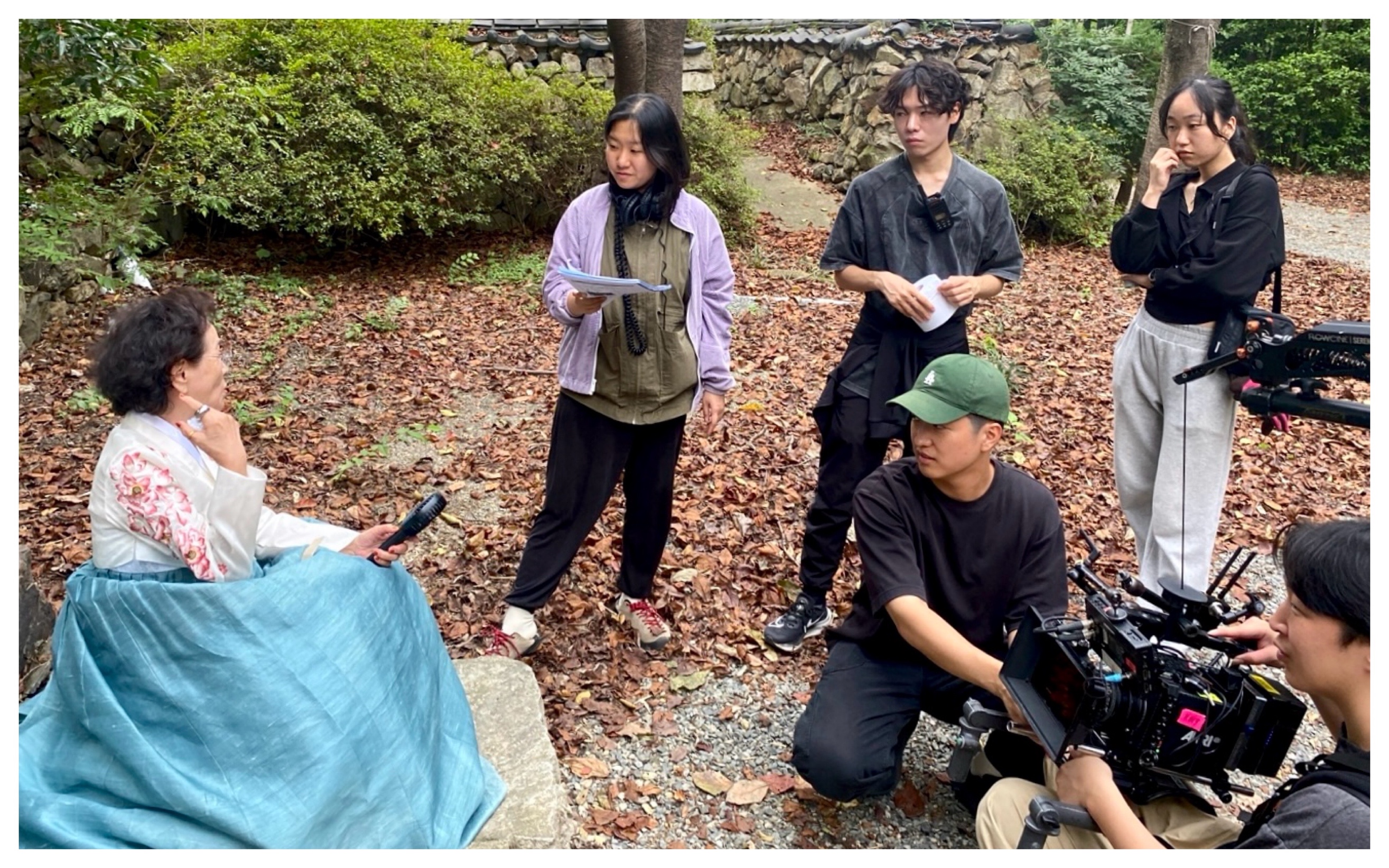
Later, we did face some friction. When the story shifted from Seokyun’s perspective to focus fully on Yeongsun, the team was divided. Production-wise, we were close to shooting, and the changes would push the budget beyond KAFA’s initial support. It added pressure across the board, but when Director Heo said, “I don’t want Yeongsun to be objectified through the younger generation’s gaze—I want to show her as she is,” I knew I had to step back. Insisting otherwise would have been a mistake. Looking back, it was one of my most meaningful lessons as a producer. And as for the expanded budget, thanks to generous sponsors, volunteers, and our cast and crew’s understanding, we were able to restructure and make it work!
One thing I want to emphasize is that all of this was possible because everyone saw “First Summer” as a film that truly needed to be made. People connected deeply with its message, which moved their hearts and earned their support. It also meant we had a team united by a clear, shared purpose—and that Director Heo’s vision was both strong and genuinely compelling.
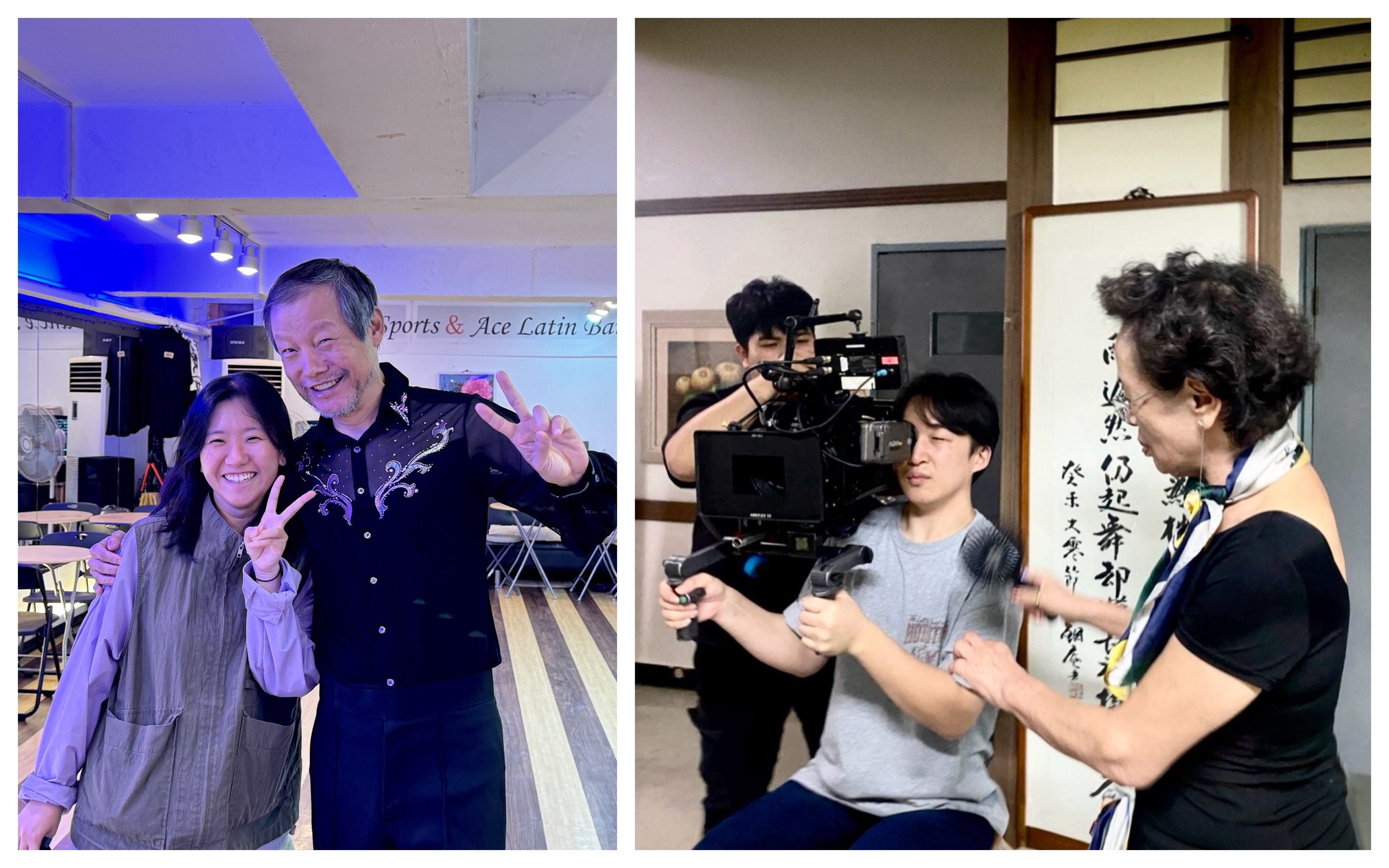
What valuable insights or experiences did you gain as a young director while working with actors much older than you?
Heo Ga-young (Director): Working with senior actors felt like an intensive masterclass in directing. As a young director, I was initially quite intimidated, but their genuine respect gave me the confidence to be firm in my vision. As a director I tend to communicate a lot with actors on set, and their openness made this project greatly driven by dialogue.
One moment that stands out was during a rainy-day scene between Yeongsun and Haksu—one of my favourites in the film. Veteran actress Heo Jin and I struggled to recapture the emotional rhythm we had before reaching this scene. After several takes, I asked her to recall the most painful moment in her life—the time she felt the deepest sense of self-compassion. We spoke at length about her memories, and when I asked her to channel that emotion into the scene, she delivered a completely transformed performance. It was an unforgettable moment. The air seemed to stand still. It was magical—truly beautiful!
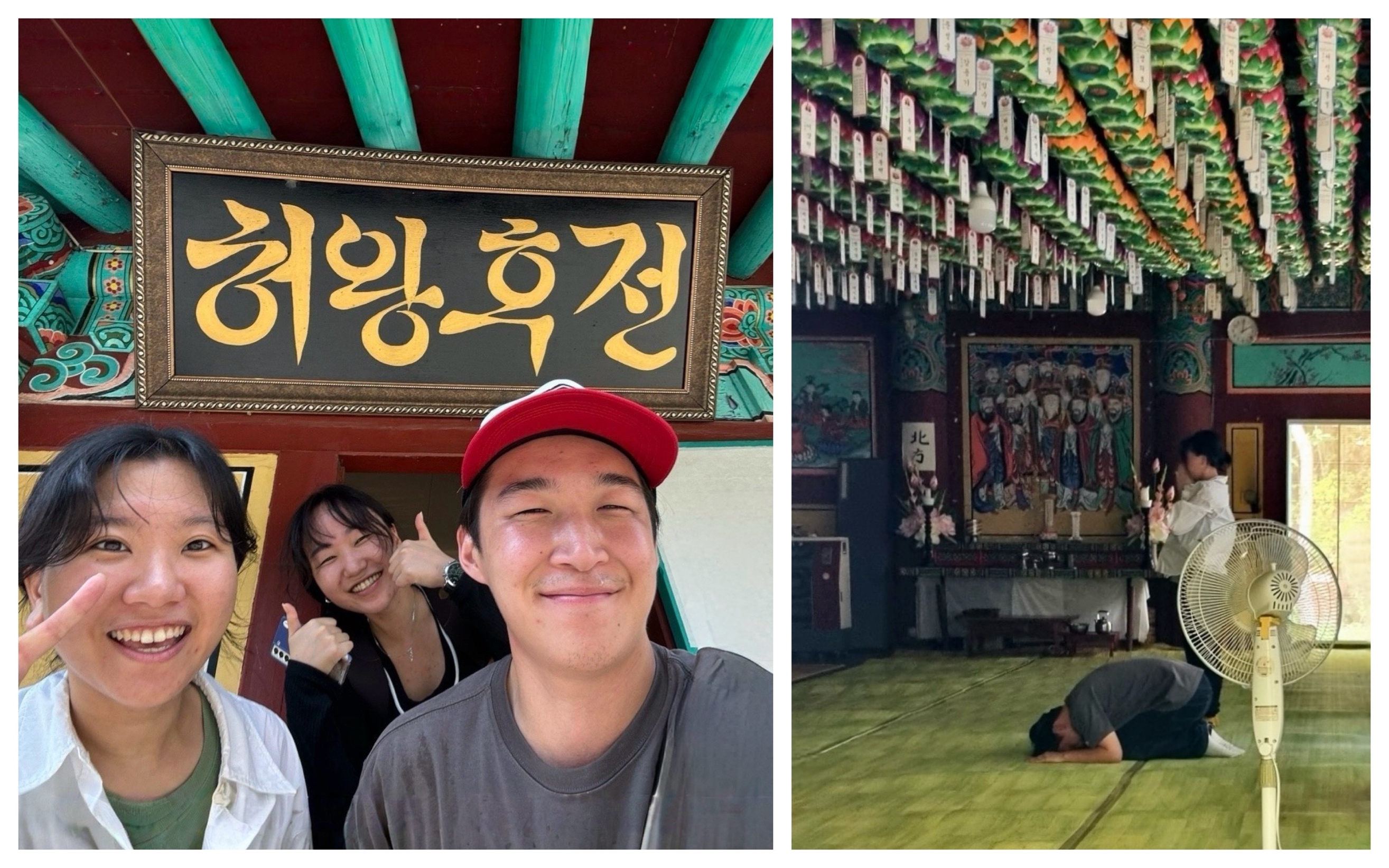
Could you tell us about the locations where “First Summer” was shot?
Heo Ga-young (Director): All the scenes were filmed in Busan, a city full of unique locations that feel very different from Seoul. For me, the most memorable spot was a Buddhist temple. By pure coincidence, it turned out to be a shrine honouring the ancestors of both me and actress Heo Jin. Though we are not related, we share the same family name. It was a truly curious and surreal experience.
In the film, we see a contrast between generations within a patriarchal structure. Yet, younger generations can sometimes be dismissive or lacking empathy toward older people. Yeongsun is caught between society’s expectations and her true self. Could you share your thoughts on this generational conflict and Yeongsun’s inner struggle?
Heo Ga-young (Director): While writing this film, one phrase kept guiding me: “Physical intimacy, love, and life do not belong to any one age group.” Elderly people also long for intimacy, love, and the chance to live authentically. Yet, society often overlooks—or even silences—those experiences. Through Yeongsun’s internal world and the societal structures around her, I wanted to tell a candid story that connects these deep desires with the systems that deny them.
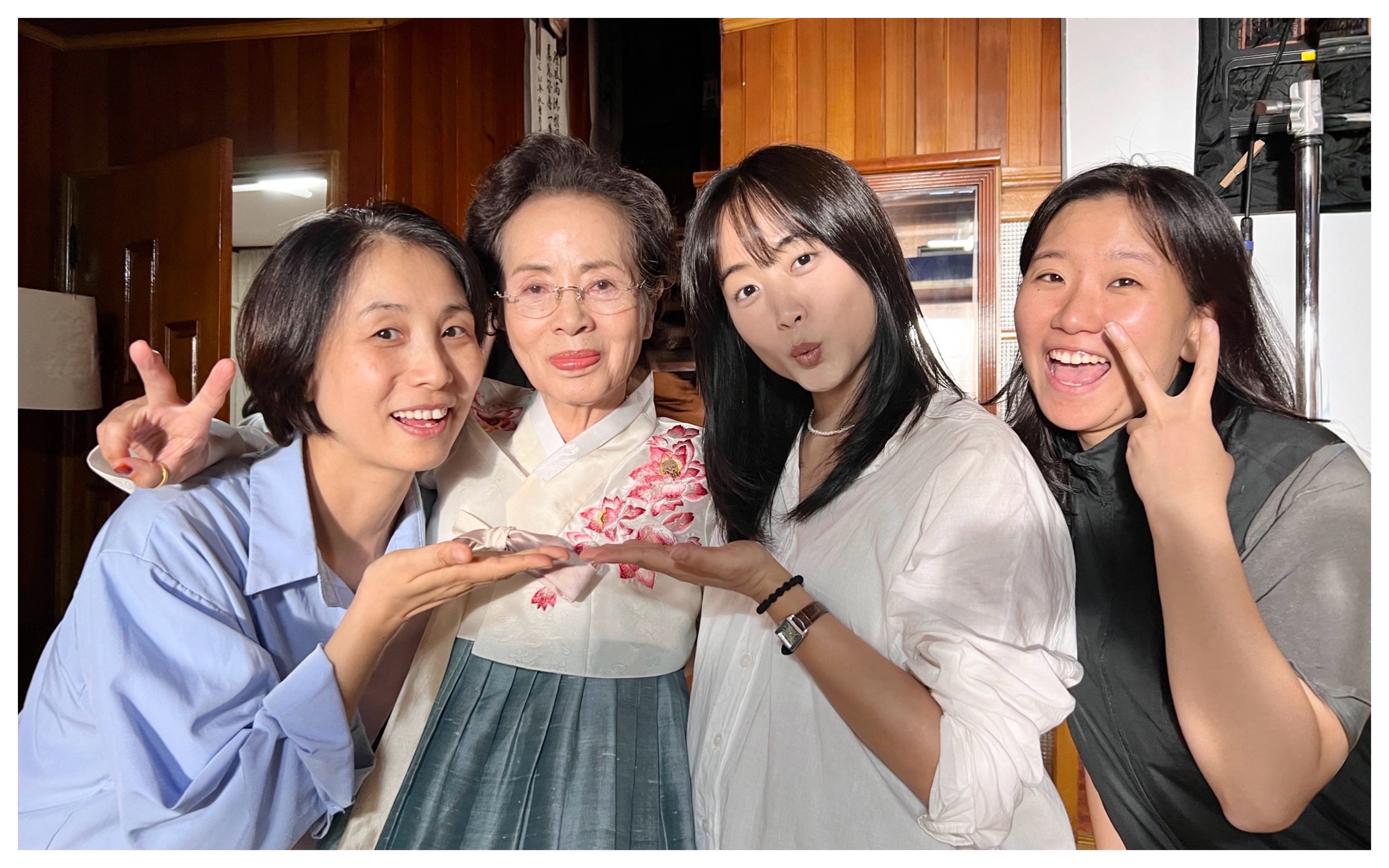
Lim Ji-yun (Producer): Yeongsun’s dilemma may seem like a simple scheduling conflict, but it reflects a deeper clash with societal expectations and external pressures shaped by cultural values. I was raised in what many might call a “progressive” household. My mother is the head of our family, and even within her generation, she holds the greatest authority among her siblings. On my father’s side, too, the most influential figure was my grandmother. Growing up in a family where women naturally had strong voices, I was taught to respect them—and in turn, I was respected as well. While this may sound “ordinary” to some, it’s still not the norm in Korean society. The film touches on the lingering belief—particularly from older generations—that women should remain economically and emotionally dependent on men, and the caregiver role—often assumed by women—is rarely respected. Although more families are moving away from this patriarchal model, remnants of these old structures persist. These are rigid and deeply ingrained habits, but they can also be used as convenient shields to maintain power or avoid discomfort. Younger characters in “First Summer” still impose old expectations on their elders despite living more modern, independent lives.
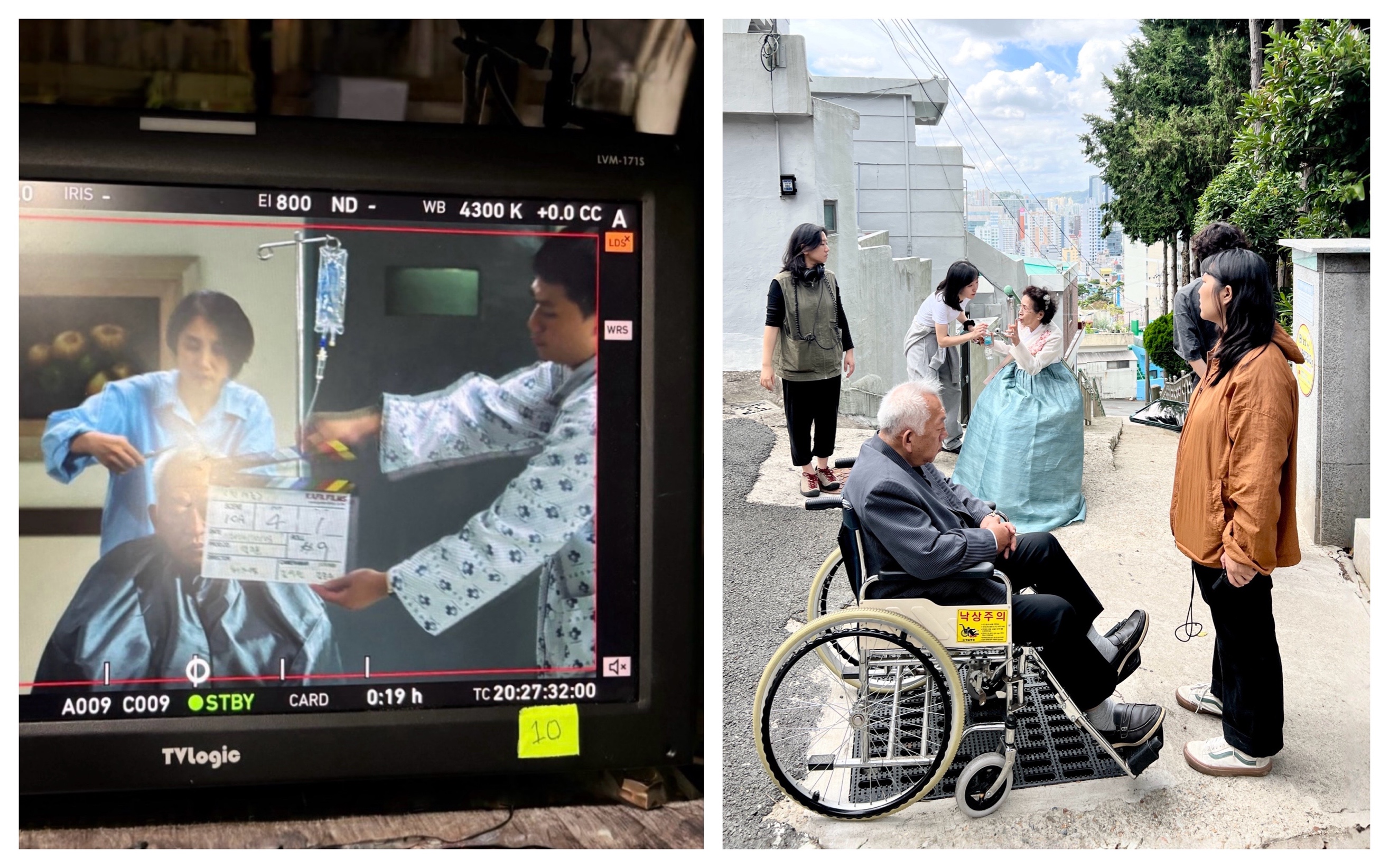
Why does Yeongsun choose to attend her dance partner’s 49th-day memorial service instead of her granddaughter’s wedding?
Heo Ga-young (Director): For me, it is less about her attending the memorial service and more about her not attending the wedding. Some viewers might see it differently, of course. But Yeongsun chooses to walk away from being seated like a doll beside her husband, applauding someone else’s milestone. Instead, she goes where she wants to go. That’s why she leaves the wheelchair behind and heads to the memorial instead.
Lim Ji-yun (Producer): This reminds me of a question a directing professor once asked during a script critique: “If Yeongsun’s core dilemma is choosing between her dance partner’s 49th-day service and her granddaughter’s wedding, why not focus more on that moment of conflict?” My response was that the film is not about her hesitation, but about the action that follows her decision. In my view, Yeongsun’s “first summer” was not when Haksu died—it was when she first met him and fell in love.
She chooses to attend the memorial because that love already transformed her. Even though we don’t see it, I imagine she spent time dancing with Haksu while still caring for her ailing husband and meeting with her family. The film hints at this through her daughter’s question: “Are you still seeing that man?” In that sense, Yeongsun’s dilemma didn’t begin in “First Summer”—it began back in that “first summer,” when she quietly promised herself to live more truthfully, not just as a grandmother but as a person with her own desires. Director Heo doesn’t present her as an “unusual grandmother,” but as someone deeply human, torn between longing and responsibility, passion and obligation. “First Summer” is just one chapter in her life. It doesn’t resolve everything, but it shows a woman choosing to honour her inner truth, and I hope that, after watching this film, viewers come away rooting for the freedom and love of all the “Yeongsuns” in their own lives.
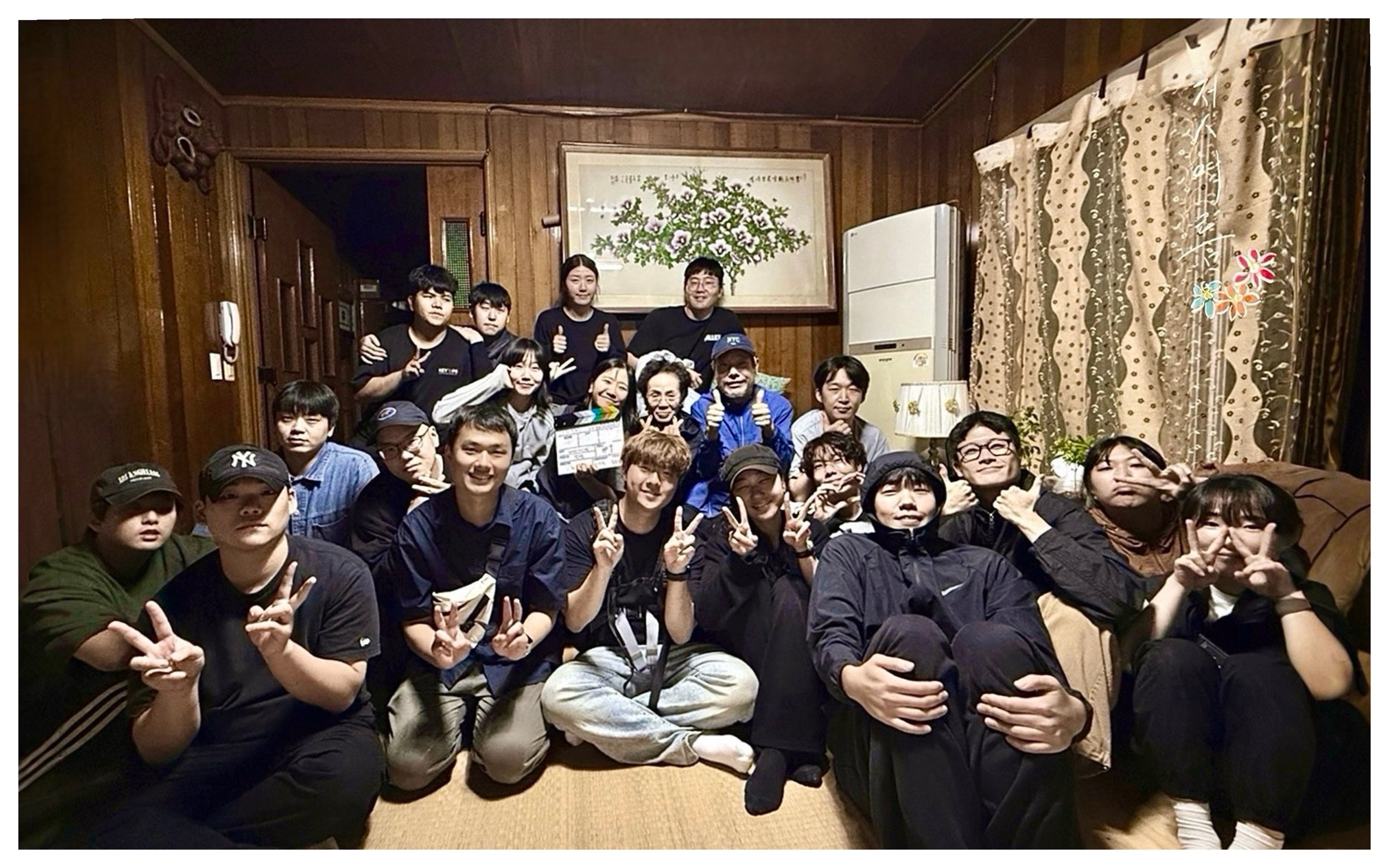
While working on set with your team, were there any unexpected or touching moments that stood out to you?
Heo Ga-young (Director): A memorable moment for me was when we arrived last to the temple location, and I saw the entire crew already there, waiting, setting up, and working hard without having eaten. That moment hit me—it reminded me of the weight of directing and the responsibility I carry. It wasn’t just moving. It was humbling and filled with complex emotions.
Lim Ji-yun (Producer): Looking back, a moment that stands out for me was when we faced a crisis with one of our key locations. We had secured the space for free, but shortly before shooting, we were informed that it would no longer be available. When I got the call from the production team member, it felt like the sky was falling. We were already behind schedule, and tension was running high. I knew we couldn’t waste any time, so during a break between takes, I called for a five-minute emergency meeting with our department heads right after the next scene was completed. Director Heo responded without missing a beat: “Got it.” The shoot continued smoothly.
Outside, I started scanning our backup locations. One by one, crew members joined me, and I briefed them on the situation and possible alternatives. Each option came with challenges—new schedules, rewrites, and no time for location scouting. But what struck me the most was the calm. Our cinematographer Kim Sijin and sound supervisor Kim Junsoo listened carefully and helped troubleshoot. Jun-soo even cracked a joke to ease the tension. Their quiet trust—unspoken but palpable—felt like the team telling me, “We trust you.” In the end, everything came together. The backup location welcomed us warmly, the actors and businesses adjusted their schedules quickly, and the crew restructured the entire shoot overnight. Later, when we screened the film, some even said the new location looked better. It felt like it was meant to be.
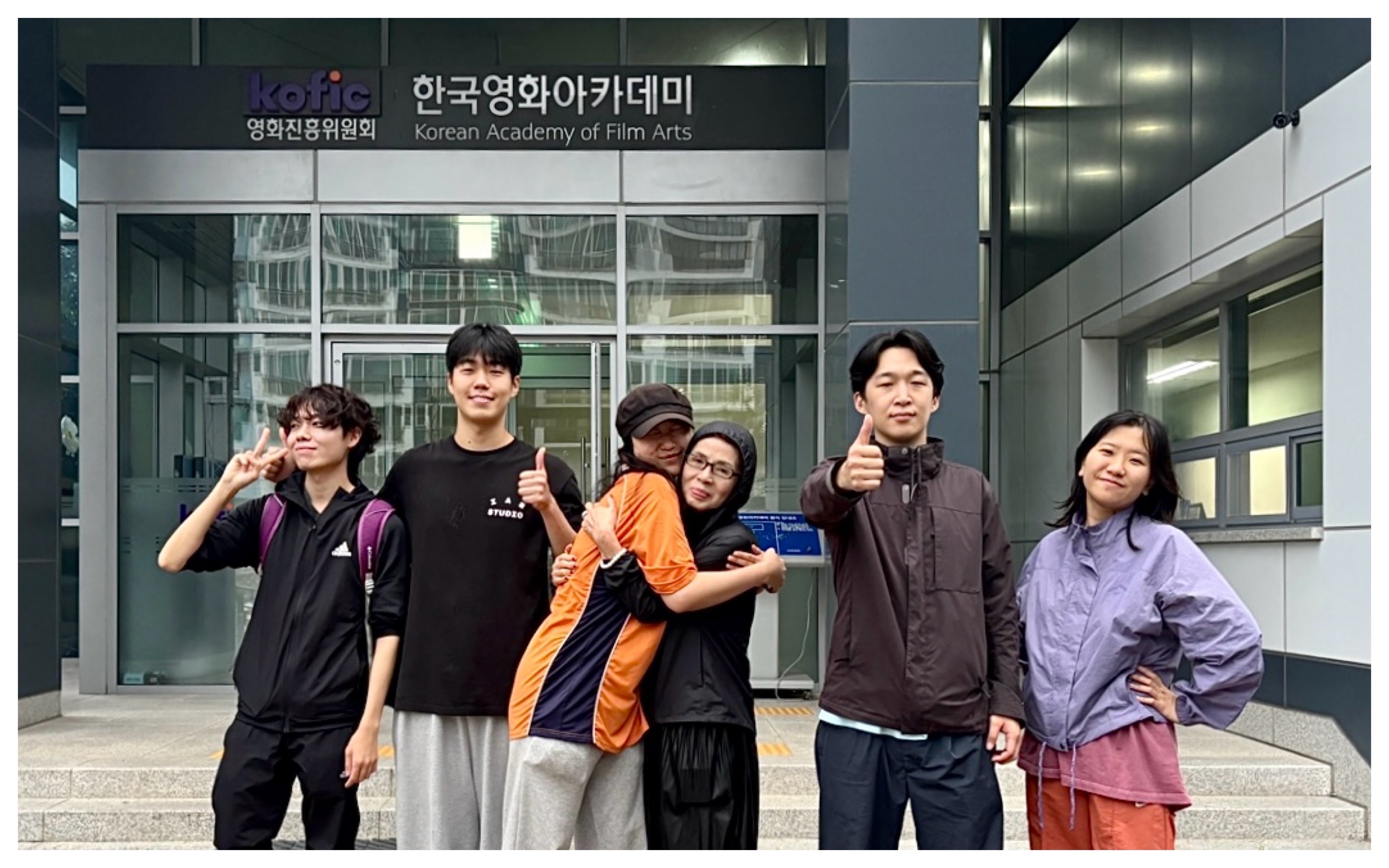
How did your school, the Korean Academy of Film Arts (KAFA), help and contribute during the film's production process?
Heo Ga-young (Director): KAFA helped us in every possible way. I have only been making films for about a year and a half, and KAFA gave me the opportunity to actually bring one to life. More importantly, it connected me with talented, generous collaborators who made this film possible.
Lim Ji-yun (Producer): KAFA supported “First Summer” not only through full funding and comprehensive production support, but also by creating a deeply immersive environment for us where creativity and resilience are nurtured. The one-year program is intensive—students live in Busan, work, study and learn together with their collaborators 24/7/365—and they naturally become close friends. Learning continues far beyond the classroom with rigorous and honest critique sessions, involving students and faculty from all majors, and pushing everyone to think critically and stay accountable—something I will carry with me long after graduation. As a producing major, courses on planning and pitching, legal issues, and ethical standards also left a strong impact on me.
While the workload is intense, the school genuinely cares for its students. From instructors and staff to alumni mentors, the support system is very strong. Run with genuine attention and support by the Korean Film Council and the Ministry of Culture, feedback from students is taken seriously and the school continues to evolve. That commitment to growth—both creative and institutional—is something I truly value. We saw this firsthand not only during production of “First Summer”, but also while organizing the 2025 KAFA Graduation Film Festival which itself became a meaningful launchpad for this project.
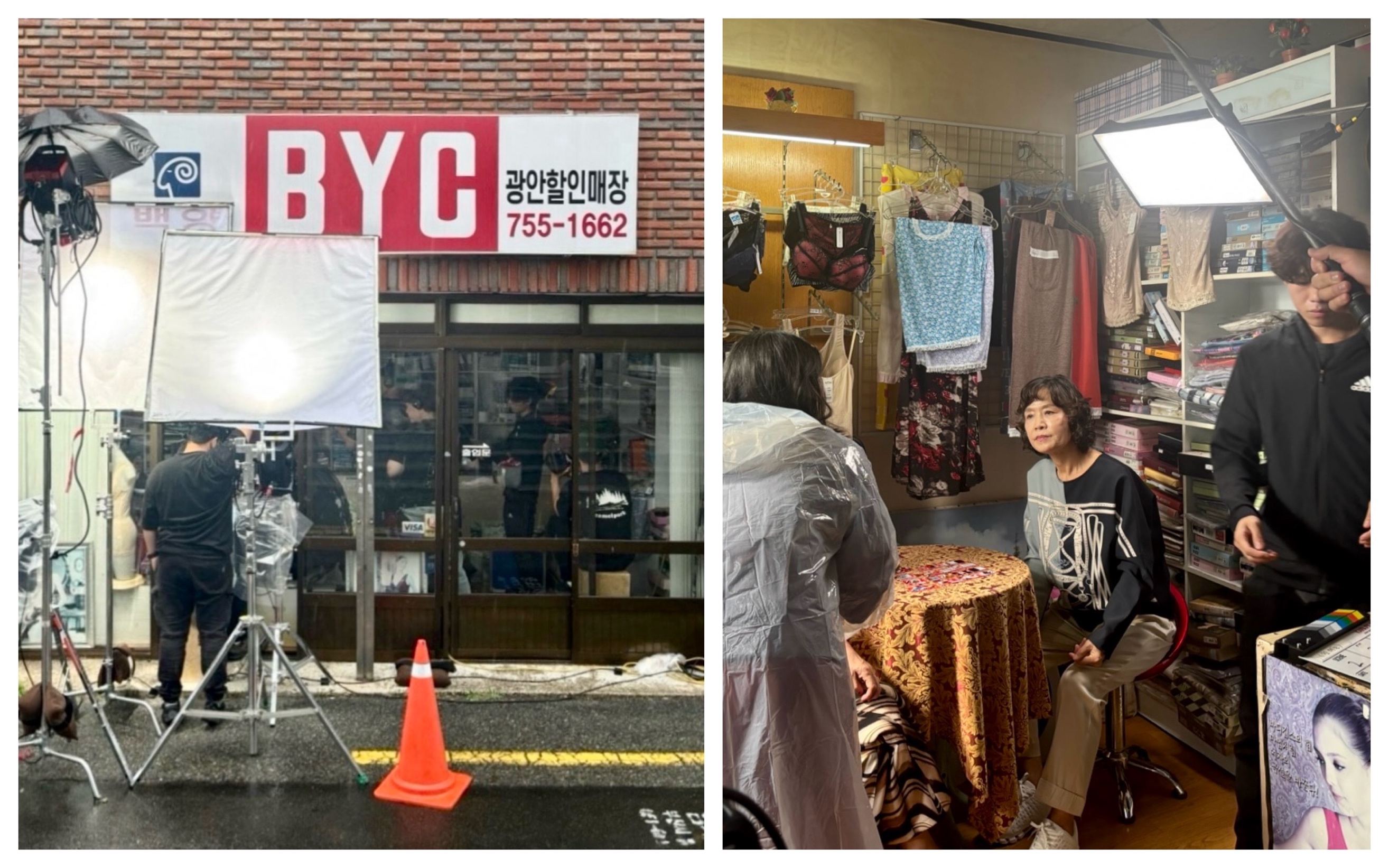
Were there any significant challenges that you faced during production and how did you overcome them?
Lim Ji-yun (Producer): “First Summer” far exceeded our initial budget. KAFA provides full production support, but for reasons of copyright and fairness, it understandably prohibits any private funding or out-of-pocket expenses, so we had to get creative. Fortunately, many generous individuals helped us go beyond what would have been possible under the official budget. Our actors Heo Jin, Kim Mi-hyang, Jeong Ingi, Shin Miyoung, and Jang Gyeongho, along with their agencies, kindly adjusted their fees and schedules. Lee Kum-ju, an Acting major, also supported us beyond her role, despite her own demanding schedule. Our cinematographer Kim Sijin and sound supervisor Kim Junsoo helped the crew stay united, while our camera, lighting, and sound teams collaborated seamlessly. Our music director, a past collaborator, gave his all to the score, and the art team did incredible work on limited resources.
One major hurdle was casting the cabaret dancers—no one had confirmed until the day before shooting. Then, unexpectedly, dozens showed up to volunteer. Most declined to be credited, so they appear simply as “36 dancers.” The community spirit we witnessed was overwhelming. Many locations either offered heavy discounts or let us film for free. Busan Saeil Hospital even provided props; Heungguksa Temple monks performed a real 49th-day chant and acted as extras. The neighbours near Yeongsun’s house cleared parking areas for us with just a flyer requesting their help. Local businesses, a local hanbok shop and even crew housing were all arranged thanks to personal connections and kind gestures. We also received legal and copyright support free of charge—from pro bono lectures to consultations with the Korean Copyright Commission. Even our professional dance teachers in Seoul and Busan offered their help at little or no cost. There are too many contributors to name, but every person and place that supported and believed in us gave the film its heart and soul. Without their generosity, “First Summer” would not have been possible.
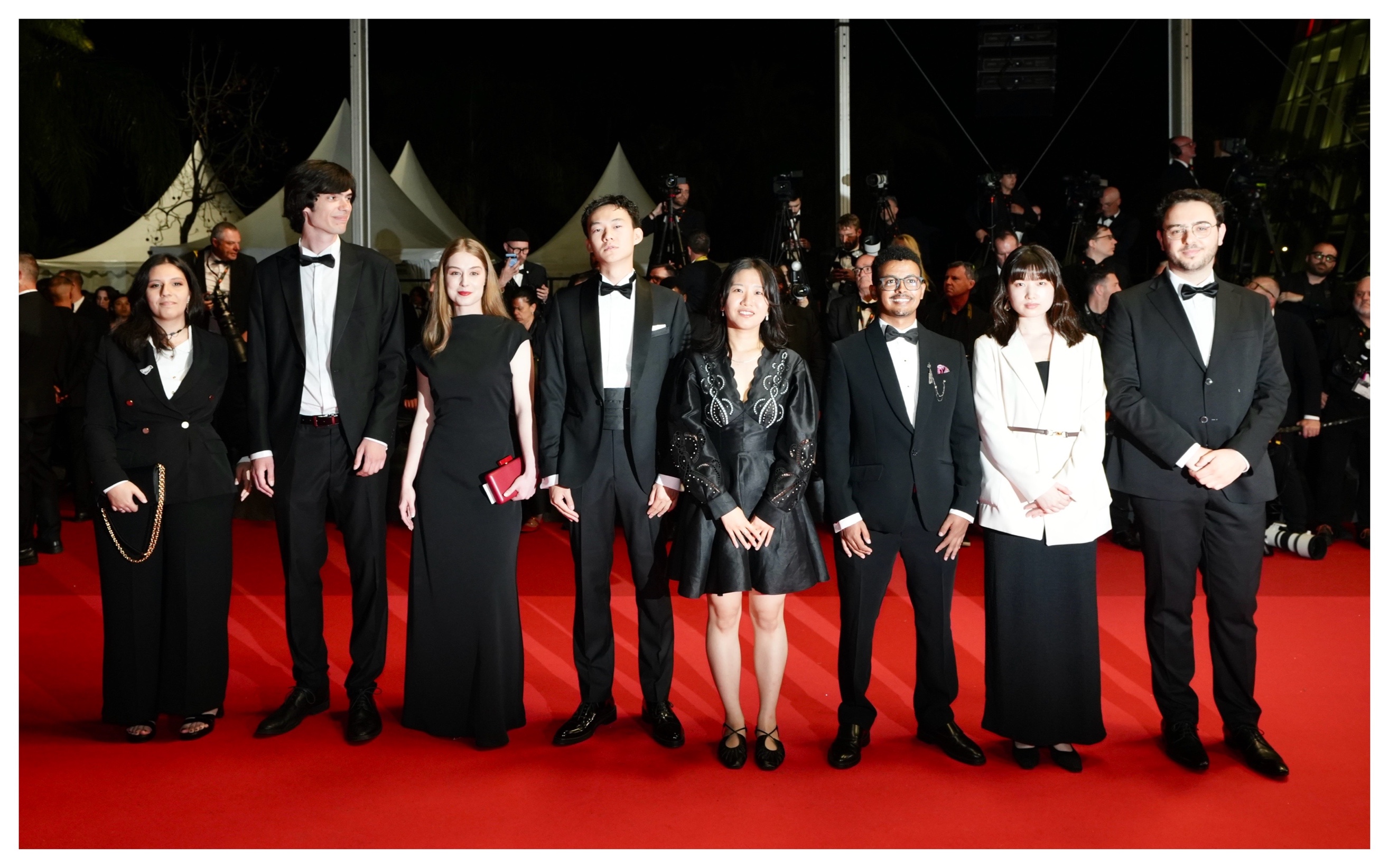
What made you decide to submit the film to the Cannes Film Festival?
Lim Ji-yun (Producer): In all honesty, there was no reason not to apply. Half-jokingly, I even thought it wasn’t entirely impossible. But the biggest reason was KAFA’s proactive support in festival submissions and distribution. KAFA covers the entry fees for all graduation films and selected student works, and it actively encourages students to bring their films to the international festival circuit. For individual filmmakers, submitting to major international festivals like Cannes can feel overwhelming due to unfamiliarity with their procedures and limited access to information, but thanks to KAFA’s backing, those barriers felt much more manageable. Even now, they continue to offer us ongoing support in marketing and distribution.
How did you feel when you found out you had won first prize in Cannes?
Heo Ga-young (Director): I could not believe it—honestly, I still can’t. It felt like Cannes had recognized a film born from the love I have for my grandmother. I was overjoyed to be able to give something back to the actors and crew who stayed up countless nights with me to make it happen.
Lim Ji-yun (Producer): Back when we were still working on the film, we never imagined we would be invited to Cannes—let alone win this prize. Ga-young was the first to hear the news of our nomination, and I still remember her trembling voice on the phone. The rest of us felt oddly calm—it hadn’t sunk in yet. I happened to be back in Korea for work when the award was announced. The full weight of the news started hitting me only when messages started coming in from interviewers like you, Volga, and some others through the Cannes Film Festival’s website. Given that France, home of Cannes, holds liberty, equality, and love as core values, it feels especially meaningful for “First Summer”—a film about freedom and love for the elderly as equal beings with desire—to receive such recognition.
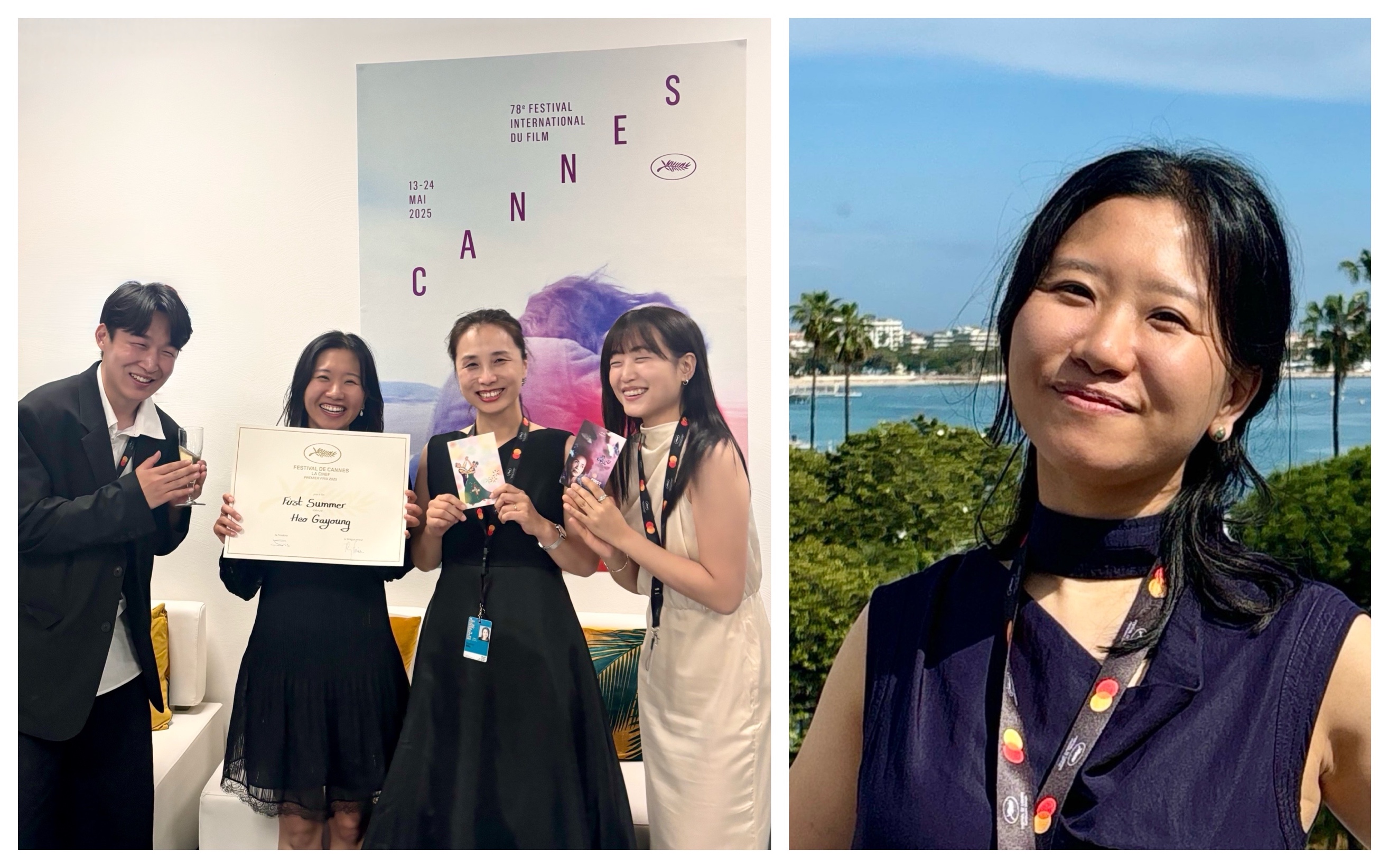
What are some other projects you are currently working on which we could look forward to?
Lim Ji-yun (Producer): I’m currently planning an animated film titled 물과 뭍의 언어 “The Language of Water and Land” (working title). It tells the stories of Koreans forcibly relocated to Sakhalin, Russia during the Japanese colonial era, alongside Korean grey whales—now extinct in Korean waters but still found in Sakhalin. Through this, I hope to evoke empathy for those who cannot return to their homelands. I also want this animation to resonate as deeply as “Lost in Starlight”, a recently released Korean animated film on Netflix that I deeply admire. During a period of burnout, this animated film helped me overcome it, and, in many ways, it has become a mentor to me. As the saying goes, “dreams are contagious.” I believe film and animation have the power to materialise one person’s vision and inspire others, and I hope to continue building a filmography—including “First Summer”—that carries that intention forward.
What advice would you give to aspiring filmmakers who want to write their own scripts, direct short films, and participate in film festivals?
Heo Ga-young (Director): Film is beautiful, but it can also be vulgar in a way. In this neoliberal world, making films—an art form driven by capital—is a kind of privilege, so I hesitate to give advice. But I will say this: Follow your inner hunger and curiosity. And be honest. If you’re not honest with your film, no audience will ever be able to truly connect with it.
Lim Ji-yun (Producer): “There’s a battle in everyone’s life, so even if you glimpse hell in others—choose kindness.” This quote from Joseon-era philosopher Jeong Yak-yong guides me in both filmmaking and life. Trust begins with empathy—recognizing the private struggles others face. Without it, true collaboration is not possible. Filmmaking is not just a right but a responsibility. When problems arise, what matters is not avoiding blame but responding sincerely and swiftly to find solutions. Every completed film, including “First Summer”, relies on trust and shared commitment. I encourage filmmakers to fight their own battles fiercely, but also remain mindful of others’ hardships—and to repay kindness with care. I still have much to learn, but I try to live by these values.
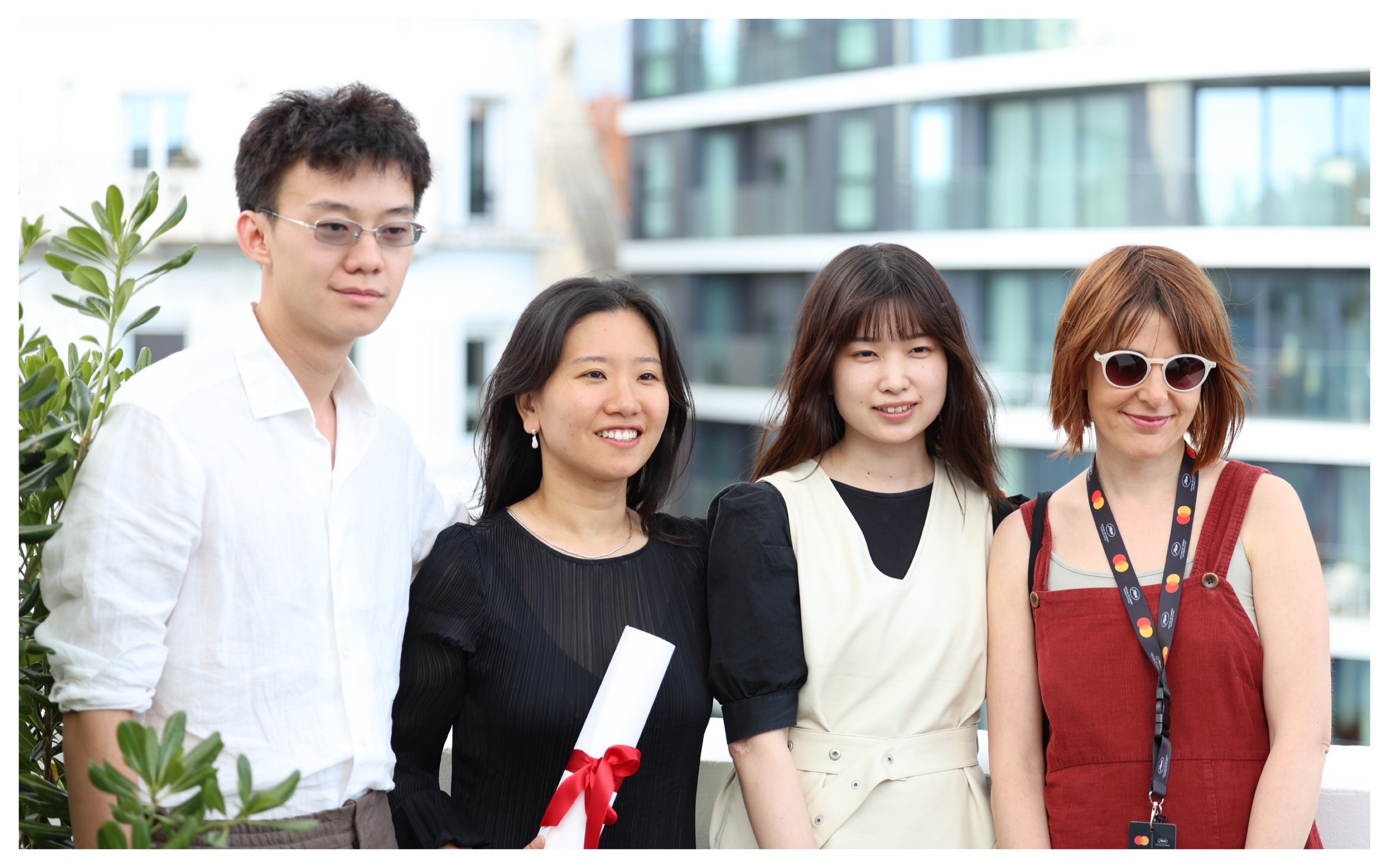
Lastly, if you could also share where and when “First Summer” will be available to watch, that would be wonderful.
Lim Ji-yun (Producer): “First Summer” has been invited to screen at the Bucheon International Fantastic Film Festival taking place this month in Korea. Since it will be the film’s first official screening in the country, I feel both nervous and excited. I sincerely hope “First Summer” will continue to find opportunities to screen in many more places across Korea.
Heo Ga-young (Director): Indeed, in addition to the Bucheon International Fantastic Film Festival—where “First Summer” will screen twice, early and mid-July—the film has also been invited to the 26thDaegu Independent Short Film Festival, taking place this August. We are hoping to screen at many more festivals across Korea and share the film with domestic audiences. There should be plenty of chances to watch it—please come see it!
How about this article?
- Like3
- Support0
- Amazing3
- Sad0
- Curious0
- Insightful0


